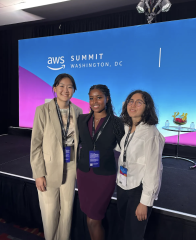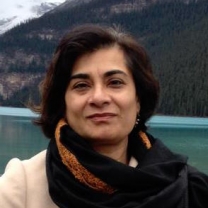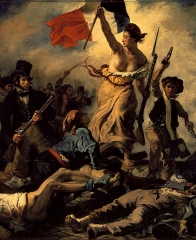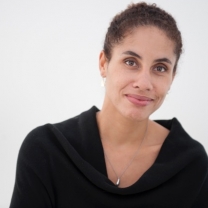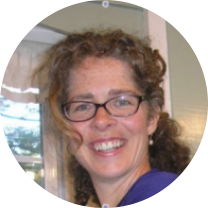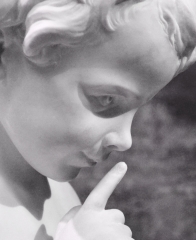 / The Power of We
Subscribe
/ The Power of We
Subscribe

Motto: If you think you are too small to make an impact, you haven’t spent a night with a mosquito.
Introduction
The UNITAR Women’s Emerging Leaders Course for Peace is grounded in a powerful vision: to empower women to shape the future of peace and security, recognizing that women’s leadership is essential to building a more just and peaceful world.
For the four of us—Wellesley alumnae, supported by the Albright Institute and generous donors—this experience has been about far more than just professional development. It has been a space for deep personal and collective transformation. We’ve been challenged to rethink what leadership truly means, confront the barriers we face, and refine our leadership styles in ways that are authentic and impactful. Along the way, we’ve connected with women from diverse backgrounds, each bringing her own unique insights and experiences.
While we could have chosen to share our individual stories, in the spirit of the “Power of We,” we decided to take a different approach. We wanted to amplify our voices as a collective, highlighting our individual experiences while also honoring the lessons we’ve learned together. This is our way of embodying the true essence of UNITAR: collaboration, unity, and shared purpose.
During our week together at the United Nations Institute for Training and Research headquarters in Geneva, Switzerland, from October 13 - 19, 2024, we were united in exploring what it means to build a positive peace—one that goes beyond the mere absence of conflict and envisions a society imbued with equity and justice, creating a mutually reinforcing framework that sustains lasting peace. This process of reimagination also requires us to recognize that harm is inevitable in relationships; it reveals the need for generative conflict that women leaders are uniquely positioned to guide. How can we address harm effectively in our communities and design systems and structures that radically restore and transform our ways of relating to one another?
Personal Reflections and Key Takeaways
Brenda Nguyen, ’19
Peace is not just an ideal; it is a way of being, a quiet revolution that begins within. Through this course, I’ve come to realize that true leadership for peace doesn’t require grand gestures or titles—it begins with a deep, unwavering alignment between our values and our actions. This understanding has been both humbling and transformative. I’ve learned that peace is a practice, one that is constantly evolving, much like our values throughout the seasons of our lives. The value inventory exercise we did forced me to confront what I stand for and how I embody those principles in every moment. It was a deep, vulnerable process, one that made me realize just how much my values had shifted over time, and how they must continue to evolve in order to guide me through life’s challenges. Coming from a background in biotechnology, I initially felt like an outsider—gripped by imposter syndrome and questioning whether I had anything to offer in the realm of peacebuilding. But as I connected with my fellow participants—strong, diverse women from all corners of the globe—I began to understand something profound. Leadership for peace is not about expertise or titles; it’s about showing up, authentically, with a commitment to healing, to justice, and to empowering those around us. Through our shared stories, struggles, and aspirations, I realized that peace doesn’t start in conference rooms or diplomatic negotiations; it starts within us. It’s about living with integrity, embodying our values, and trusting that when we align ourselves with peace, we become catalysts for change in the world.
If there’s one lesson that has shaken me to my core, it’s this: resilience is not just about surviving—it’s about transforming through adversity. This course has taught me that resilience isn’t a fixed trait but a dynamic process of growth, one that requires deep emotional flexibility and an unwavering belief in the possibility of change. We explored wellness as more than just physical health—it’s about flourishing in the face of life’s challenges, drawing strength from the very things that might have once broken us. The wellness wheel and zone of genius exercises were a powerful moment of reflection for me. It forced me to take stock of where I was in my life, emotionally and mentally, and to recognize that true peacebuilding begins with nurturing ourselves. If we don’t fill our own cups, how can we pour into others? The course also emphasized the importance of congruence—living in alignment with our deepest values. When we lead with authenticity, when our actions reflect our inner truths, we build trust, not only in ourselves but in the communities we serve. Leadership for peace, I’ve come to understand, is not about knowing all the answers or being free from struggle. It’s about being deeply aware of the complexities of the world, cultivating clarity within ourselves, and using that clarity to heal, to listen, and to inspire. The wisdom I’ve gained has not only changed the way I see myself but has given me the tools to lead with purpose, compassion, and unwavering belief in the power of peace—both within and around me.
Brianne O’Donoghue, ‘17
I have always wanted to live and work internationally. That ambition led me to apply to the Albright Institute, study abroad in Rwanda and Uganda, and complete my Albright internship in Peru. Yet, after Wellesley, concerns over financial stability—and later, COVID-19—kept me from taking that leap. Meanwhile, I continued building my career in Los Angeles, the hometown I returned to after graduation. I was heartened by the growth I experienced in the local social impact sphere and by the strong community I had built. But every so often, the question of whether I would ever realize my dream of living abroad would gnaw at me.
When the opportunity to attend the UNITAR Emerging Leaders course arose, it felt like the perfect moment. My contract was steadily drawing to a close, and recent shifts in my personal life left me feeling poised to embrace a significant transition. So I arrived in Geneva with an open mind and heart, grateful and ready to experience what might come next.
Many elements of the course will stay with me, but perhaps the most inspiring aspect was hearing the stories of my fellow participants and witnessing the culmination of the life paths they had chosen. I heard many stories of resilience, tenacity, and boundless courage: the woman pursuing a PhD in a country where educating women remains taboo; the one who moved to the other side of the world to become an academic expert in a culture and language so different from her own; and the woman seeking refuge from her homeland who continues to fight for the human rights of her ethnic group. Each of them shared a moment of deep self-trust, taking an unconventional path and forgoing stability, certainty, or comfort, at least for a time.
During a panel on leading in VUCA (volatile, uncertain, complex, and ambiguous) contexts, one of the speakers, Dr. Jelena Aparac, shared the words of one of her former professors: “life belongs to those who dare.” I wrote those words down, drawing a star next to them in my notebook. This was what I had come for. Those are words to live by, and the program renewed my commitment to do just that.
Since returning from the UNITAR course, I reflect often on those words and ask myself if my current life choices reflect the boldness I seek. I hold close the encouragement and examples set by my peers as role models to emulate. I have drawn strength from the resources and community offered by Wellesley, including Career Education, and these reflections led me to expand my job search globally. Last week, I triumphantly submitted my first application for a position in the UK. I am still early in my search, and the outcome is uncertain, but I am immensely hopeful and full of gratitude; in the end, a dash of daring was just what I needed.
Nancy Negrete, ‘14
When I first learned of the opportunity to apply for this course, I didn’t hesitate for a moment. As a student, Wellesley provided me with countless opportunities to work and study abroad. Ten years after graduation, it amazes me how Wellesley and the Albright Institute continue to invest in my personal and professional development and my week with UNITAR was no different.
One of the first memorable moments for me happened during the first 10 minutes of the course – “write down one word or phrase to represent what it took to get you here”. I wrote exhausting. I had just wrapped up a heavy week at work and looked forward to two intense weeks as soon as I came back. I arrived to Geneva with a sense of lacking. I felt I wasn’t meeting the moments of my career and felt I wasn’t utilizing my voice as strongly as I should be as a local policy maker. As the day progressed, we learned about different levels of leadership and while I arrived thinking I would learn how to influence at the organizational or societal level, I was quickly reminded that intrapersonal leadership and checking in with myself was the key to unlocking growth and stability.
Given we live in a time of much uncertainty and fear, the Women’s Emerging Leaders for Peace program gave me valuable tools and lessons to navigate our world today. One of the most powerful is the wellness wheel, which measures which areas of my life I’m struggling with, and which areas I feel confident in. The wellness wheel is something I incorporate into a weekly practice now, giving me the opportunity to check in with myself and make an action plan for how to improve specific areas of life – last week I increased the amount of times I journaled (to fuel my emotional wellness); this week, I increased the amount of time I cooked (to fuel my physical wellness). This course reminded me of how important it is to take care of my basic needs.
A second lesson I walked away with is the importance of communicating and giving space and time to hear each other. As a local policy maker, I was reminded of the negative consequences we face when we don’t take the time to consider the voices and opinions of those who are traditionally left out of social, political and economic decisions. As I continue my work in local government, I am energized to continue making decisions that will better the lives of communities of color and advocate for policies where residents are the ones directly deciding how and why to implement certain ordinances.
By the time my week in Geneva ended, I felt a sense of gratitude. While I arrived feeling less than, after a few hours with this group of powerful women, I felt comfortable to speak my mind, share my voice, and bring my experiences as a Latina and daughter of Mexican immigrants to this program and to the world.
Natalia Bard, DS ’21
The education I received at Wellesley, and the Albright Institute’s fellowship, have directly contributed to my present success as an owner of an international trade business, importing energy efficient European windows and doors for homeowners across New England. I am humbled and indebted to the Albright Institute for inviting me to the UNITAR Women’s Leadership in Peace course, which strengthened me in fulfilling my goal to offer sustainable construction materials to educational, cultural and intergenerational communities, yet it also set me on a new path to coach women who desire to grow a business, especially in traditionally non-female environments.
What directly motivated me to apply for this course was the need to challenge the current status quo, and question who gets to lead and why, which created a sense of urgency in me, and required the time to stop and think. This is exactly what I received from the poised and galvanizing women - creators and facilitators of the course at UNITAR’s Peacekeeping Training Unit: a non-issue specific, non-prescriptive, skills and mindsets oriented course, experientially facilitated, educational and transformational. We listened, observed, drew portraits, made collages, played movement games, laughed, danced, wrote and discussed. We took the time to stop and think individually and communally, with new frameworks and tools in hand.
It was truly inspiring to find myself on the learning trajectory and notice when the “aha” moments and life lessons transpired. Our learning progressed gradually, building upon self-reflection, sharing and creativity with most authentic women I’ve been honored to work with.
Day 3 of our week-long journey together was a turning point for me. Following my brisk morning walk through the half-dark rainy streets of Geneva, I took a seat behind the circular table, eager to continue listening to all perspectives in the room. After a short meditative activity and sharing which I believed brought us closer together, we were presented with a challenge, and only fifteen minutes to solve it. We communicated, we struggled, we persisted, and we failed. How do we bring each person along? One of us asked this key question and she wasn’t heard. The game caught me off-guard, I focused on what was in front of me and prioritized process over outcome. The paradox of leadership styles became evident. How to achieve a goal without being domineering? Right then I realized my privilege both in this particular moment, and in life. Having an insight goes a long way, but only if I listen first and act collectively.
The polarity mapping technique we utilized the following day turned instrumental in leveraging a paradox into a greater purpose. It demands a shift from an EITHER / OR to an AND, allowing contrasting forces to balance and enhance one another. That process reaffirmed my conviction in seeing differences as assets, weaknesses as strengths, conflicts as paths to understanding. There is indeed a desperate need for intercultural dialogue, which thanks to the UNITAR experience, I resolved to focus on.
I came back home with inner peace, despite tumult and discord around.The most moving moments of the week together was seeing myself in others and letting others see themselves in me. “The stories we tell are based on the stories we listen to.” My personal path continues to prepare me for the unexpected and I am present to take it on.
As we reflect on this transformative week in Geneva, we are struck by how our paths, though once separate at Wellesley, have finally converged in the most beautiful and unexpected way. Despite having shared years on the same campus, it wasn’t until we came together through The Albright Fellowship’s sponsorship and the UNITAR Women’s Emerging Leaders for Peace program that we truly connected. Here, we’ve learned not just about peacebuilding and leadership, but about the strength of collaboration, the power of deep listening, and the importance of supporting one another. The care and love we’ve shown each other have been a gift—one that feels familiar, like a return to the Wellesley spirit, even though we are thousands of miles away. In a world that often feels divided, this week has reminded us that real, transformative change happens when we show up for one another with open hearts, trust, and vulnerability. This experience has ignited a sense of purpose in us, showing us the true strength of siblinghood—the connection and unity that emerge when we lead with empathy, purpose, and an unwavering commitment to justice. Together, we are stronger, and together, we will continue to create change.
